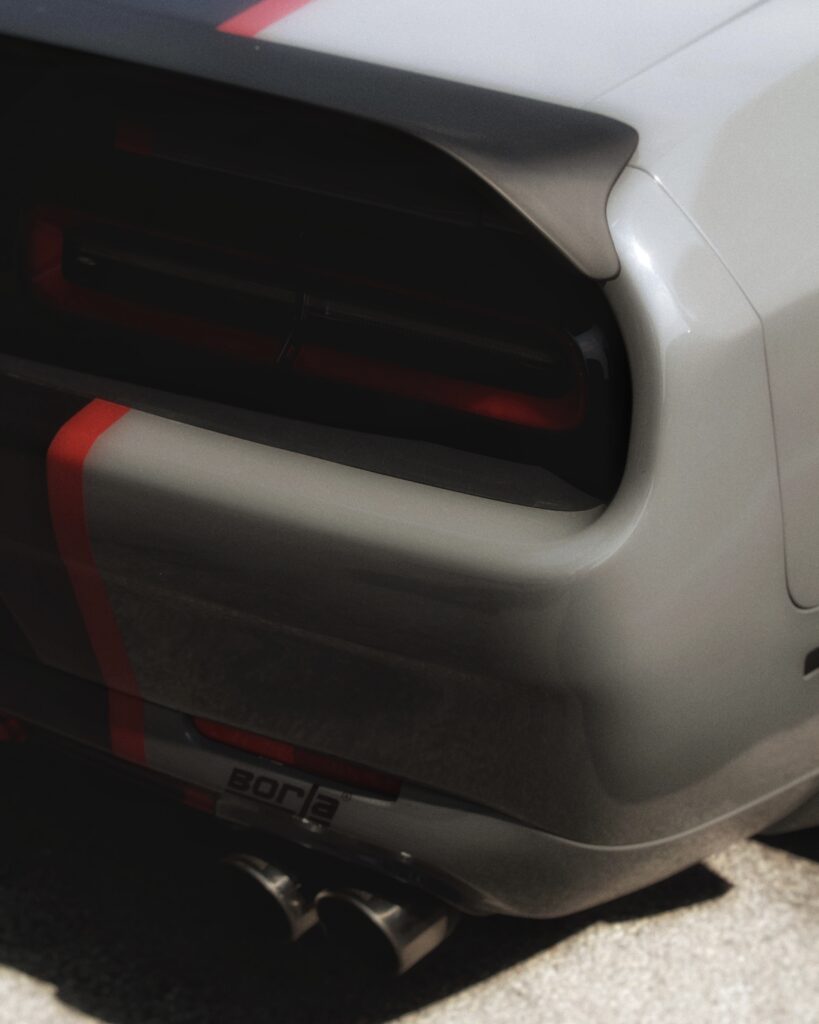You’re about to uncover an intriguing connection between your vehicle’s exhaust system and that pesky engine knocking sound you’ve been trying to tackle. As you embark on this informative journey, prepare to explore whether a faulty exhaust system could potentially be the culprit behind that unsettling noise. Brace yourself for an eye-opening revelation that may just help you solve this automotive mystery once and for all.
Understanding Engine Knocking
What is Engine Knocking?
Engine knocking, also known as detonation, refers to the metallic tapping or knocking sound that occurs within the engine when the air-fuel mixture in the combustion chamber ignites prematurely or in an uncontrolled manner. This phenomenon can disrupt the smooth running of the engine and potentially lead to serious damage if left unaddressed.
Symptoms of Engine Knocking
The symptoms of engine knocking can vary, but some common indicators include a persistent knocking sound coming from the engine, reduced power and acceleration, a decrease in fuel efficiency, and even engine overheating. It’s important to address these symptoms promptly as ignoring engine knocking can lead to significant engine damage over time.
Common Causes of Engine Knocking
Several factors can contribute to engine knocking, including poor fuel quality, improper spark plug timing, carbon build-up on the pistons, and excessive engine heat. In some cases, a bad exhaust system can also be a contributing factor to engine knocking. Therefore, it is crucial to understand the basics of an exhaust system and its potential impact on engine performance.
Basics of an Exhaust System
Components of an Exhaust System
an exhaust system is composed of several different components that work together to safely remove exhaust gases from the engine and reduce harmful emissions. These components typically include the exhaust manifold, catalytic converter, muffler, resonator, and various pipes and hangers.
Role of the Exhaust System
The primary role of the exhaust system is to transport exhaust gases away from the engine and expel them outside the vehicle. Additionally, the exhaust system aids in reducing noise levels, improving fuel efficiency, and minimizing harmful emissions.
How Does the Exhaust System Work?
When the engine’s cylinders fire, the resulting combustion process generates exhaust gases. These gases pass through the exhaust manifold, which collects and directs them towards the catalytic converter. The catalytic converter then aids in reducing harmful emissions by facilitating chemical reactions that convert pollutants into less harmful substances. Finally, the gases flow through the muffler and resonator, where noise reduction takes place before being released into the environment through the tailpipe.
Signs of a Faulty Exhaust System
A faulty exhaust system can exhibit various signs that indicate potential problems. These signs may include a louder-than-usual exhaust noise, visible smoke coming from the tailpipe, a decrease in fuel efficiency, and a foul smell. If any of these signs are present, it is essential to have your exhaust system inspected promptly to prevent further damage and potential engine knocking.

Exploring the Link between Engine Knocking and a Bad Exhaust System
Can a malfunctioning Exhaust System Cause Engine Knocking?
While a malfunctioning exhaust system is not typically the sole cause of engine knocking, it can contribute to or exacerbate the problem. A bad exhaust system can disrupt the proper functioning of the engine, leading to conditions that may induce engine knocking. Therefore, it is crucial to maintain a well-functioning exhaust system to minimize the risk of engine knocking.
How Does a Bad Exhaust System lead to Engine Knocking?
A bad exhaust system can contribute to engine knocking in several ways. Firstly, a blockage or restriction within the exhaust system can disrupt the flow of exhaust gases, leading to increased backpressure within the engine. This increased pressure can cause the air-fuel mixture to ignite prematurely, resulting in engine knocking.
Secondly, a damaged or faulty catalytic converter can disrupt its ability to regulate emissions effectively. This can cause an imbalance in the air-fuel mixture, leading to incomplete combustion and potential engine knocking. Additionally, if the catalytic converter becomes clogged or damaged, it may restrict exhaust flow, increasing backpressure and further contributing to engine knocking.
Lastly, a leaking exhaust manifold can introduce excess oxygen into the combustion chamber, leading to a leaner air-fuel mixture. This lean mixture can ignite more readily and cause engine knocking. Thus, addressing any issues with the exhaust system is crucial to prevent the occurrence or worsening of engine knocking.
The Role of Exhaust Gases
What Are Exhaust Gases?
exhaust gases are the byproducts of the combustion process that occur within the engine. These gases primarily consist of nitrogen, carbon dioxide, water vapor, carbon monoxide, and various other trace gases and particulate matter. While these gases are a natural byproduct of engine operation, their proper management plays a crucial role in maintaining engine performance and preventing complications such as engine knocking.
How Mismanagement of Exhaust Gases Can Cause Engine Knocking
Mismanagement of exhaust gases can contribute to engine knocking in various ways. If the exhaust system fails to remove these gases efficiently, they can accumulate within the engine, leading to increased temperatures and pressures that can induce premature ignition and engine knocking. Additionally, if the air-fuel mixture is imbalanced due to improper exhaust gas management, this can also contribute to engine knocking.
The Role of The Catalytic Converter in Managing Exhaust Gases
One of the key components responsible for managing exhaust gases is the catalytic converter. The catalytic converter utilizes a combination of catalysts to facilitate chemical reactions that convert harmful pollutants present in the exhaust gases into less harmful substances. By effectively managing the composition of the exhaust gases, the catalytic converter plays a crucial role in maintaining engine performance and reducing the risk of engine knocking.

Misfiring and Engine Knocking
What is a Misfire?
A misfire refers to the failure of one or more cylinders in the engine to ignite properly during the combustion process. This can result in a loss of power, rough idling, engine shaking, and potentially engine knocking. Misfires can occur due to various factors, including faulty spark plugs, ignition coils, or fuel injectors.
Can Misfiring Cause Engine Knocking?
While a misfire itself may not directly cause engine knocking, it can create conditions that contribute to its occurrence. A misfiring cylinder can lead to an imbalanced air-fuel mixture, which can increase the likelihood of premature combustion and engine knocking. Additionally, misfires can result in higher levels of unburned fuel and excessive heat within the engine, further increasing the risk of knocking.
The Role of the Exhaust System in Misfire Prevention
The exhaust system indirectly plays a role in misfire prevention by facilitating the efficient removal of exhaust gases. By effectively managing exhaust gas flow and ensuring proper emission control, the exhaust system helps maintain a stable environment within the combustion chamber, reducing the chances of misfires and subsequent engine knocking.
The Impact of Leaking Exhaust Manifolds
What is an Exhaust Manifold?
The exhaust manifold is a component of the exhaust system that collects exhaust gases from each cylinder and directs them toward the rest of the system. It is typically made of cast iron or stainless steel and is attached directly to the engine’s cylinder head.
How a Leaking Exhaust Manifold Can Lead to Engine Knocking
A leaking exhaust manifold can introduce excess oxygen into the combustion chamber during the intake stroke. This excess oxygen can create a lean air-fuel mixture, increasing the likelihood of engine knocking. Additionally, a leaking exhaust manifold can result in uneven distribution of exhaust gases, leading to imbalances in engine performance and potential knocking.
Detecting and Fixing Leaking Exhaust Manifolds
Detecting a leaking exhaust manifold can be challenging, as the symptoms may be subtle. Some signs to watch out for include a ticking or hissing sound near the engine, the smell of exhaust fumes inside the cabin, and reduced engine performance. It is essential to have the exhaust manifold inspected by a professional if any of these signs are present. Addressing a leaking exhaust manifold promptly can help prevent engine knocking and further damage to the engine.

Exhaust Backpressure and Engine Performance
Understanding Exhaust Backpressure
Exhaust backpressure refers to the resistance encountered by the exhaust gases as they flow through the exhaust system. Some level of backpressure is necessary for optimal engine performance, as it aids in scavenging exhaust gases and maintaining a stable air-fuel mixture.
Impact of High Backpressure on Engine Performance
Excessive backpressure can have detrimental effects on engine performance. It can impede the efficient expulsion of exhaust gases from the engine, leading to decreased power, reduced fuel efficiency, and potential engine knocking. Furthermore, high backpressure can cause increased temperatures within the exhaust system, potentially causing damage to components and further exacerbating engine knocking.
How Backpressure Can Cause Engine Knocking
Excessive backpressure can disrupt the proper functioning of the exhaust system, leading to incomplete expulsion of exhaust gases from the combustion chamber. This build-up of exhaust gases can increase temperatures and pressures within the engine, creating conditions that increase the risk of premature combustion and engine knocking. It is crucial to maintain appropriate backpressure levels to prevent these issues.
Professional Assistance for Exhaust System and Engine Troubles
When to Seek Professional Support
If you experience symptoms such as engine knocking, reduced power, or abnormal exhaust noises, it is advisable to seek professional assistance promptly. A certified mechanic will be able to diagnose the exact cause of the issue, whether it is related to the exhaust system or other engine components. Prompt action can help prevent further damage and costly repairs down the line.
What to Expect In A Professional Check-Up
During a professional check-up, the mechanic will perform a comprehensive inspection of the exhaust system and the engine as a whole. This may involve visual inspections, diagnostic tests, and potentially the use of specialized tools to identify any underlying issues. Based on their findings, the mechanic will provide recommendations for repairs or replacements, aiming to restore the proper functioning of the exhaust system and prevent engine knocking.
Cost of Repairing Exhaust System and Resolving Engine Knocking
The cost of repairing an exhaust system and resolving engine knocking can vary depending on the specific issues and the make and model of the vehicle. Simple repairs such as fixing leaks or replacing components may be relatively affordable, while more extensive repairs or replacements can be more costly. However, investing in necessary repairs is essential to maintain the longevity and performance of your vehicle, as well as ensuring your safety on the road.
In conclusion, while a bad exhaust system is not typically the primary cause of engine knocking, it can certainly contribute to the problem. Issues such as exhaust leaks, malfunctioning catalytic converters, and excessive backpressure can disrupt the proper functioning of the engine, leading to conditions that induce engine knocking. It is crucial to understand the basics of an exhaust system, recognize the symptoms of engine knocking, and seek professional assistance when needed. By maintaining a well-functioning exhaust system and addressing engine issues promptly, you can protect your engine from potential damage and ensure smooth and efficient operation.
